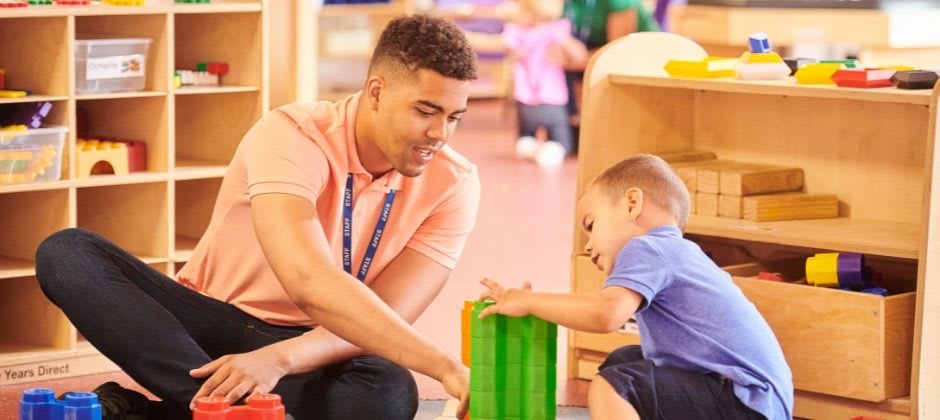What does a special education teaching assistant do?
A special education teaching assistant supports classroom teachers by helping individual students overcome various learning challenges. A demanding, yet ultimately rewarding job, you may work alongside students in a mainstream classroom, a designated area, or in a Special Educational Needs (SEN) school. Depending on the needs and severity of the child’s condition, you may work one to one with an individual pupil, or with a small group of children in a larger classroom situation.
Day to day, your job involves working alongside the classroom teacher to help students succeed in the classroom. This might mean encouraging children to communicate with others, helping them to understand instructions and developing confidence in their learning. As the child's difficulties may be related to speech, language and communication difficulties, the job requires excellent communication skills and training to help them overcome these issues.
You may also be expected to help the student with social activities before and after school or during break times. It is highly likely you will attend meetings to support the student's learning, and some special education assistants may also attend therapy sessions with them.
Find your next course
Is this the job for me?
In order to succeed as a special education teaching assistant, you need a great deal of patience. Working in this role can be challenging, so empathy, a caring attitude, and a strong understanding of children is vital. In addition, you will need to be good at working as a team, as you will work alongside teachers, parents and carers to ensure the child or children in your care receive the correct support.
What are the working hours like?
As a full time teaching assistant, you will be expected to work during normal school hours on weekdays. You may need to assist the teacher with lesson planning and marking before and after the school day has ended. Most teaching assistants only work during term-time, but may be required to go on training courses during holidays. Generally, teaching assistants in the UK enjoy a reasonable salary and the career has a promising future outlook.
Where will I be based?
By no means your normal office job, as a special education teaching assistant you will spend your time in the classroom. Classrooms are a fun, vibrant environment, and teaching assistants often build close relationships with all the students - not just the ones they support. As a vital support to the classroom teacher, you will find yourself a much valued member of your working environment. You may also have the opportunity to attend and supervise the student in your care during school excursions. One thing is certain, no two days are ever the same for a classroom assistant!
How do I become a special education teaching assistant?
As it usually down to the individual school to decide what qualifications and experience they want their teaching assistants to have, the entry requirements for this role vary. Therefore, as well as finding the right training course, you will also need to get some experience working with children or young people with disabilities in order to build a good teaching CV. It is a good idea to take some training courses in specific learning difficulties beforehand.
The qualifications available for trainee teaching assistants include a Level 2 Award in Support Work in Schools, a Level 2 Certificate for the Children and Young People’s Workforce, and a Level 3 Award in Supporting Teaching and Learning in Schools.
Once you have gained your first position, it’s often a good idea to continue your education in order to gain further qualifications alongside your practical experience. If you choose to do this, it’s a good idea to look into the Level 3 Certificate Supporting Teaching and Learning in Schools, the Level 3 Diploma for the Children and Young People’s Workforce, or the Level 3 Diploma in Specialist Support for Teaching and Learning in Schools.
Furthermore, you may be required to go on specialist courses to help communicate with the children in your care, such as a British Sign Language qualification or training from the Royal National Institute of the Blind (RNIB).
Find your next course

